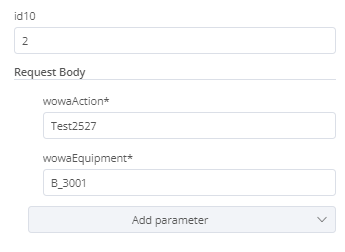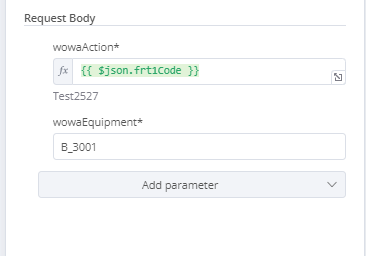Hi,
So I have an issue with using expression as input in my custom declarative node.
Here is the issue:
I have tested my node using fixed value, without issues.
Here is my node:

It calls a webservice, and this node works fine.
But if I use an expression to get the value from the preivous node, it doesnt work eventhough it seems to resolve fine:

The value wowaAction* is added to the query body of my request in the node.
As you can see the string seems to resolve fine (to “Test2527”, same as the value I used for my tests as fixed value).
In my node, I use this expression to get the value:
"wowaAction": '={{$parameter.requestbody.wowaAction}}'
Which works fine when using fixed inputs.
Is there an issue there that prevents the expression from resolving before being added to the query ?
Thanks!
Information on your n8n setup
- **n8n version:0.219.1
- Running n8n via Docker